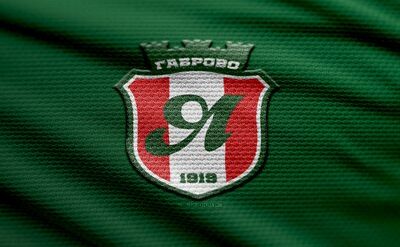When you think of English football, clubs such as Manchester United, Liverpool, and Arsenal often come to mind. However, in recent years, Brighton & Hove Albion FC has emerged as a team not only to watch but also to respect. From its humble beginnings to its current standing in the Premier League, the journey of this club illustrates the essence of dedication, community support, and strategic prowess in the world of football TRANG CHỦ RR88.
The Historical Context of Brighton & Hove Albion FC
Understanding the historical backdrop of Brighton & Hove Albion FC is crucial in appreciating how far the club has come. Established in 1901, the club has had its share of ups and downs, reflecting the broader changes within English football.
The Early Years and Formation
Brighton & Hove Albion was founded by a group of local sportsmen who were passionate about football.
Initially playing at the Goldstone Ground, the club participated in various regional competitions before making their way into the Football League in 1920. The early years were fraught with challenges, including financial instability and fluctuating performances.
These formative years were characterized by resilience. Despite being relegated from the First Division, the club maintained a strong community presence. This connection with local supporters played a significant role in shaping the club’s identity.
The Struggles in the Mid-20th Century
In the mid-20th century, Brighton faced considerable struggles both on and off the pitch.
The club experienced relegation to lower divisions and battled financial crises, leading to worries about its survival. During these turbulent times, the fans rallied around their team, demonstrating unwavering loyalty.
It was during this period that iconic figures began to emerge, contributing to a richer club narrative. Players like Peter Ward became legends, encapsulating the spirit of the club and its supporters. The sense of unity between the team and the community became evident, solidifying the roots of Brighton & Hove Albion FC in their hometown.
A Defining Moment: The 1983 FA Cup Final
One of the most significant milestones in the club’s history occurred in 1983 when they reached the FA Cup final.
This event marked a turning point, instilling hope and excitement among the fan base. Although Brighton lost to Manchester United in a penalty shootout, the journey to the final captured the imagination of many.
This moment was not just about football; it represented a collective ambition and pride for the city of Brighton. It showcased the potential of the club and inspired future generations of players and supporters alike.
The Road to Promotion: Rebuilding and Restructuring
After enduring years of hardship, Brighton & Hove Albion FC entered the 21st century facing the need for profound changes.
The Move to Falmer Stadium
In 2011, the club moved to the Amex Stadium (officially known as the American Express Community Stadium), a state-of-the-art facility that replaced the Goldstone Ground.
This transition marked a new era for the club. The modern stadium not only provided improved facilities for players and staff but also fostered a vibrant match-day atmosphere. The move symbolized hope and rejuvenation, attracting a new wave of supporters while maintaining the loyalty of long-term fans.
Strategic Leadership Under Tony Bloom
Tony Bloom, a lifelong supporter and successful businessman, took over as chairman and implemented an ambitious vision for the club.
His leadership saw the hiring of talented coaches and scouts, emphasizing the importance of a strong youth academy. This approach laid the groundwork for sustainable growth and development, allowing the club to identify and nurture emerging talents.
Bloom’s strategic thinking also extended to the club’s financial management, ensuring that Brighton could compete in an increasingly commercialized football landscape. He promoted a culture of transparency and accountability, earning the respect of fans and stakeholders alike.
Success in the Championship
Following their emergence from the league abyss, Brighton found themselves competing fiercely in the Championship.
Under manager Chris Hughton, the team demonstrated resilience and tenacity, securing promotion to the Premier League in 2017. This achievement was monumental not only for the club but also for the supporters who had endured a rollercoaster ride of emotions throughout the decades.
The promotion bid reignited the passion within the community, reinforcing the belief that Brighton & Hove Albion FC was capable of achieving great things.





